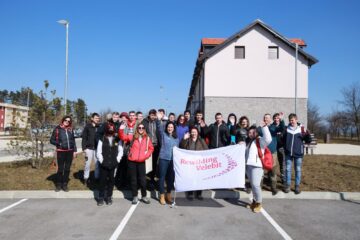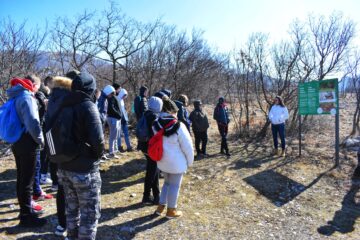World Rewilding Day saw many of Rewilding Europe’s rewilding teams organise public events. Showcasing rewilding efforts, these brought people closer to nature.
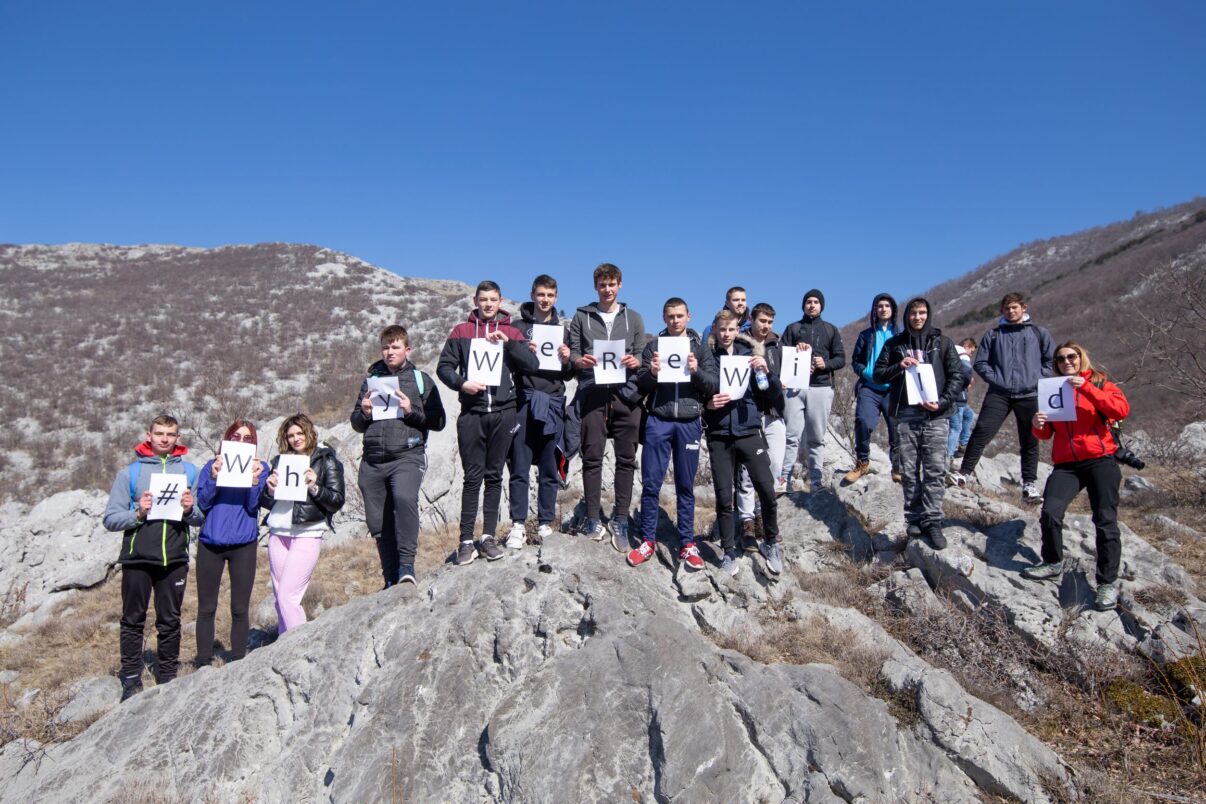
Capturing hearts and minds
People and communities lie at the heart of rewilding. Only by joining forces and harnessing human talent, passion and desire for change can we restore the natural world and find a way to live alongside and thrive with nature. This is why events such as the annual World Rewilding Day – which takes place every year on March 20 – are so important, raising awareness of rewilding, captivating people with the wonder of wildlife and wild landscapes, and inspiring them to engage in nature recovery at all scales.
This year’s World Rewilding Day saw rewilding initiatives from six continents jointly call for the restoration of wildlife populations to address climate change and keep global warming to an absolute minimum. It was also a day to showcase the diverse benefits of rewilding and celebrate nature by enjoying the great outdoors.
Celebrating wild nature
In the run-up to World Rewilding Day, all of our local rewilding teams shared videos from their rewilding landscape, showing #WhyWeRewild. The teams presented their actions on the ground – such as wetland restoration and efforts to support wildlife comeback – which contribute to healthier landscapes and ecosystems that are better able to absorb and store carbon, thereby helping to address the climate emergency.
Many of the rewilding teams showcased their efforts further by organising events and excursions into their local rewilding landscapes. In the Central Apennines, for example, 14 nature lovers gathered together for a guided hike on what turned out to be a beautiful spring day.
“Seeing eagles, griffon vultures, wolf tracks and bear hair first-hand was a great way to educate our guests about how essential each wildlife species is, and to demonstrate how we are working with people and nature in the area to rewild the landscape,” says Rewilding Apennines Field Officer Fabrizio Cordischi, who co-led the hike.
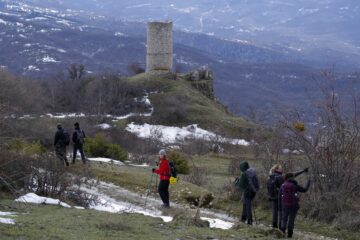
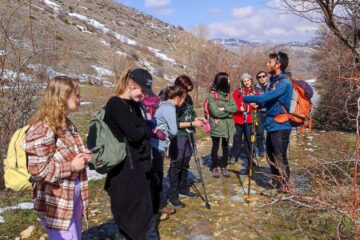
In the Greater Côa Valley rewilding landscape in northern Portugal, the local rewilding team organised an interpretive tour of two of its rewilding areas – Vale Carapito and Paul de Toirões. The event, which was attended by 23 people from across Portugal and further afield, showcased rewilding efforts in the area and their benefits, and the need to scale up rewilding as a way of simultaneously addressing biodiversity decline and climate change. The group enjoyed sightings of many bird species, such as griffon and cinereous vultures, kites, and short-toed snake-eagles, as well as amphibians and insects.
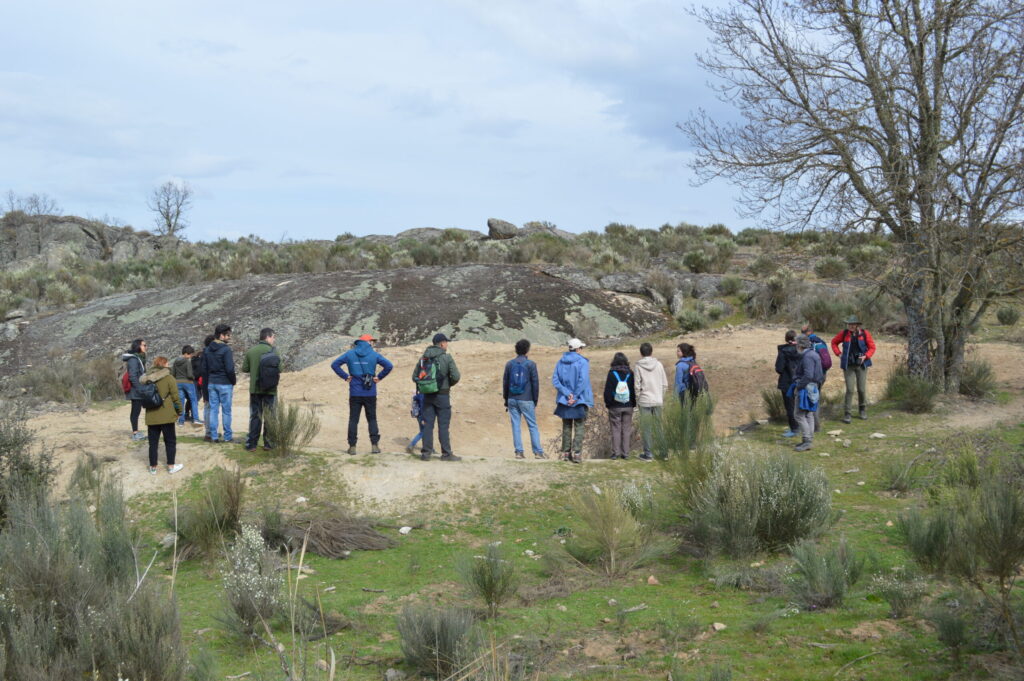
Engaging the younger generation
Young people are the future of our planet, so allowing them to connect with nature at a young age is really important. In the Rhodope Mountains rewilding landscape in Bulgaria, World Rewilding Day saw the local rewilding team organise a busy full-day programme with a group of more than 20 young people from the Kardzhali-based “From Black to White“, a youth club focused on photography. The day kicked off with a short presentation, followed by the screening of a rewilding documentary and an educational tour of the Eastern Rhodopes Nature Centre in the town of Madzharovo. The group learned more about rewilding and what is being done to support nature recovery in the Eastern Rhodopes.
In the afternoon the group took a short hike through the Rhodope Mountains in the company of soaring griffon vultures, enjoying close-up views of vulture nests and learning about the life of this iconic keystone species.
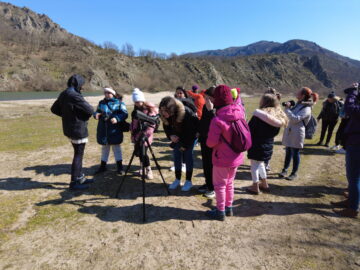
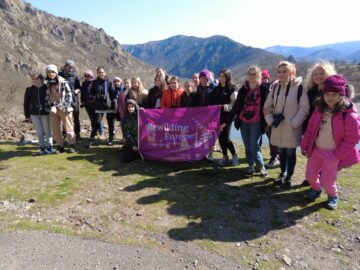
In the Velebit Mountains rewilding landscape in Croatia, activities to celebrate World Rewilding Day also focused on the younger generation. An educational trip was organised, involving students from Gračac High School. They first hiked along the newly constructed “Vera Velebit” trail to familiarise themselves with a wide range of Velebit wildlife, the importance of old-growth forest preservation, and the work of the Rewilding Velebit team. They then visited the Theresiana watering hole, where they learned about the importance of preserving natural watering places in the Velebit landscape and wildlife monitoring with camera traps.
